
In the modern world, no living person can claim a full understanding of all human knowledge. Not even close. I have a hard time keeping up with what’s happening in just one day on the Internet. But in previous centuries, it was possible to be a complete polymath, at least theoretically. No one could know every language or culture in the world and its particular knowledge, but it was possible for someone to have gained a full knowledge of all significant intellectual material that was available to him or her in that time and place.
Until about 1750 or 1800 (when the Enlightenment and scientific inquiry led to more information than any one person could understand), a European intellectual with a “Renaissance man” interest in different fields could have read nearly every important book that had been printed, be fluent with the medical, astronomical, scientific and mathematical knowledge of the day, and have been exposed to the significant works of art, theater, and music. Throw in other fields such as history, geography, philosophy, political theory, religion, and law; that person would be very close to knowing everything there was to know in that era.
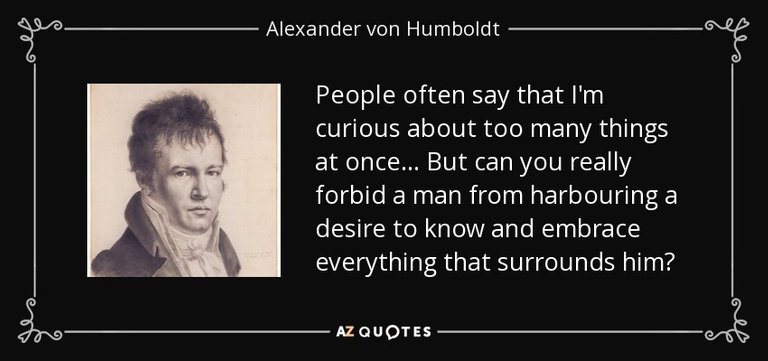
Granted, this exercise is patriarchal and it is Euro-centric. An eighteenth century European intellectual would not have known all of the legends of the Hopi tribe, the Chinese remedy for a sore throat, or how to say “Thank you” in the Zulu language. And it also restricts the list of candidates to those who led public intellectual lives or who published prolifically.
That rules out most women, who were not as well educated or accepted for their intellectual contributions until later. And it rules out most people from parts of the world outside of Europe. Is it possible that an aristocratic woman, with the time to self-educate herself, a large library at hand, a number of visits to major museums and theaters, and a circle of intelligent friends and family members, might have come close to obtaining that level of understanding? Could someone from Cambodia, Chile, Cuba, or Cameroon have done the same? Perhaps, but unless the person was known to others or published works that demonstrated a high level of knowledge, then we may never know.
“The last man to know everything” (or a similar phrase) is a subtitle of several biographies, each focusing on a different person. I will focus on the four I believe to be the best candidates to claim such a title. As mentioned, this may not be inclusive. Also, I’m sure that some people would include Aristotle, Leonardo da Vinci, and Shakespeare on their lists, but even if they were “know it alls” of their time, they lived too early. This post is about the LAST (most recent) person to have known all there was to know.
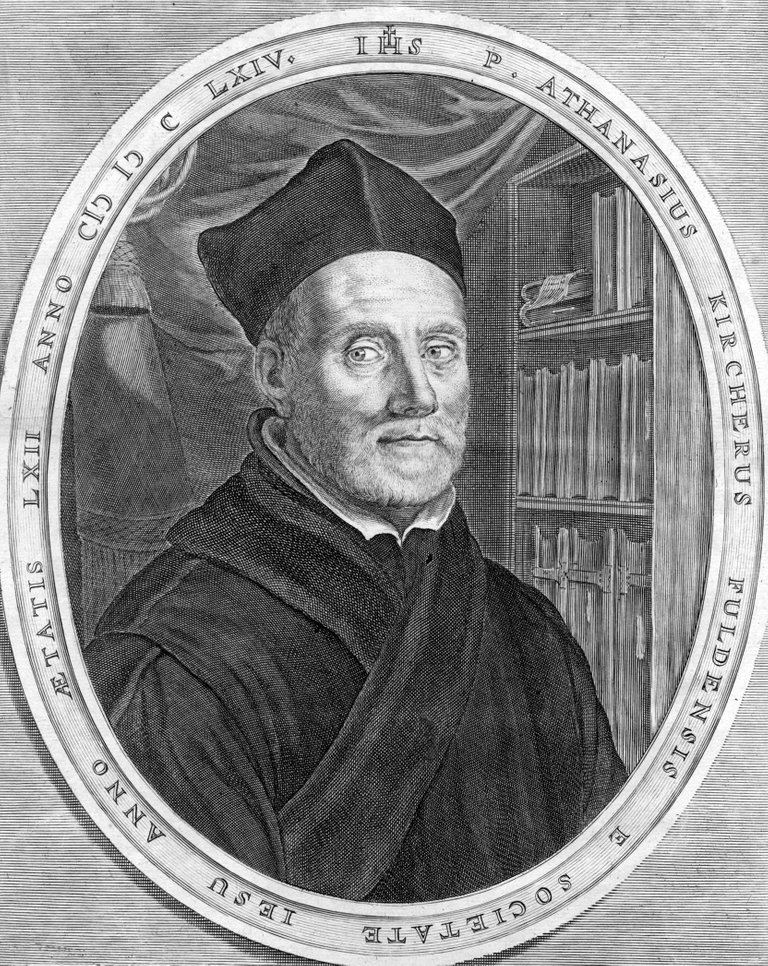
Athanasius Kircher (1602-1680)
Athanasius Kircher (or Kirchner) was a Jesuit scholar from Germany, who lived in the Seventeenth Century. He explored and pioneered scholarship in a number of different fields, including comparative religion, geology, biology, medicine, mathematics, languages, and Egyptology. Though some of his theories were later proven wrong, he probably had a more all-encompassing knowledge of science, medicine, history, and religion than anyone else of his era. He also had a keen understanding of technology, inventing the megaphone, various magnetic clocks, and automaton gadgets.
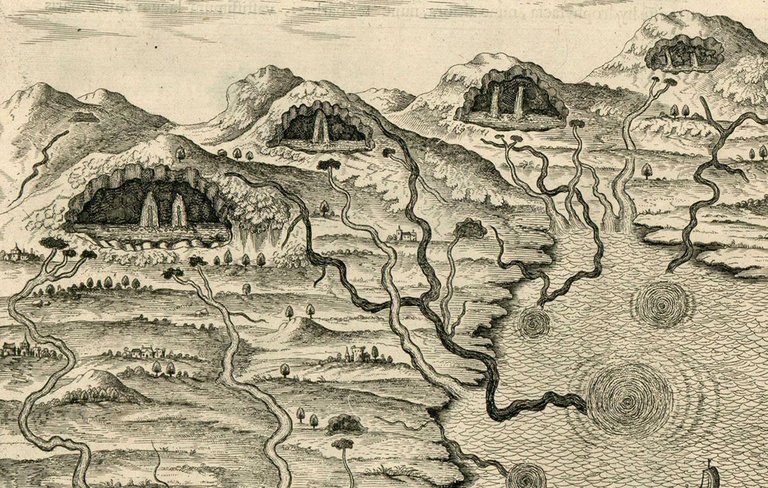
A drawing by Kircher, called Mundus Subterraneus.
Kircher taught several languages (in addition to physics, mathematics, religion, and other subjects), including Hebrew and Syriac/Aramaic. This led him to Egyptian hieroglyphics, for which he claimed to have cracked the code. It later turned out to be incorrect, but he made influential studies of ancient Egypt and its connection to other ancient cultures.
In a completely separate discipline, Kircher was one of the first people to conclude that the plague was caused by an organism. He used a microscope to view what he thought was the microorganism responsible (though today, it seems more likely he was viewing blood cells). Then he proposed quarantine procedures to keep the plague from spreading, a revolutionary idea in its own right.
Later scholars have called Kircher “the last Renaissance man” and “one of the last thinkers who could rightfully claim all knowledge as his domain.”
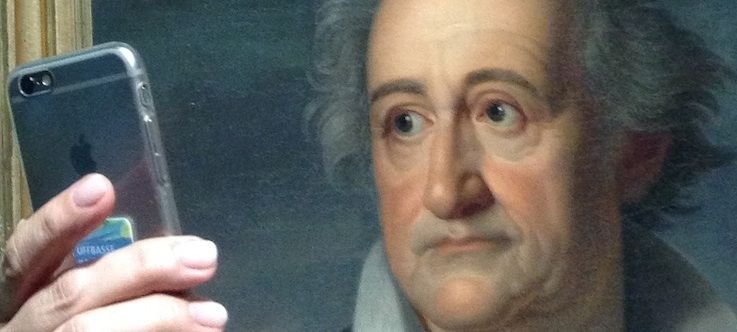
Johann Wolfgang von Goethe (1749-1832)
Albert Einstein believed that Johann Goethe was “the last man in the world to know everything.” By all accounts, Goethe was one of the most intelligent and intellectually varied human beings who has ever lived. Literature, poetry, drama, philosophy, linguistics, botany, chemistry, physics, anatomy, government, law: Goethe’s wide range of interests made him a force in many fields. Tutored in languages and educated in law, he had an early interest in both drawing and literature.
He is probably best known for Faust, his epic drama that brought us the idea of selling one’s soul to the devil. Tremendously influential even today, his literary works became a cornerstone (many would say THE cornerstone) of Nineteenth century thought. In the field of music alone, Goethe’s works inspired pieces by Mozart, Beethoven, Schuman, Wagner, Berlioz, Liszt, Mahler, and others. So many later thinkers, from Hegel to Wittgenstein to Marx, drew heavily upon Goethe.
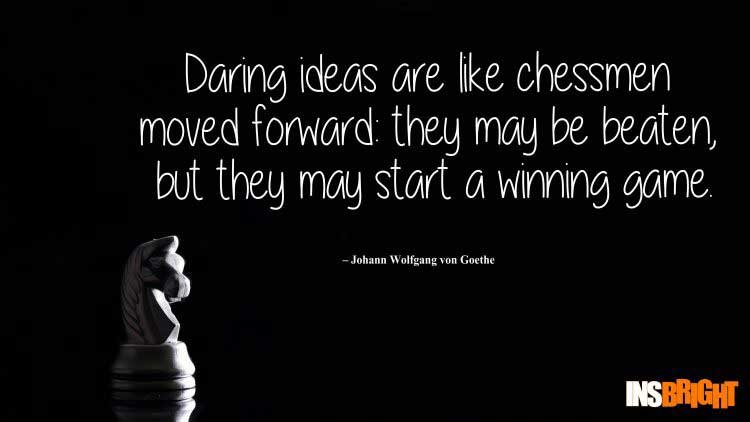
In science, Goethe believed his most important contribution was in the field of color, where he analyzed the spectrum of light. He owned the largest private collection of minerals in Europe and made studies that involved fossils. Beginning with the skull of an elephant, he discovered bone features which were common to all mammals, including humans.
He also was active with botany, in which he demonstrated his organic view of nature. This approach became quite important in the way that scientists (then and today) understand the natural world. Goethe focused more on the nature of processes, such as the metamorphosis of plants during the stages of their growth, rather than viewing each part in isolation as if it were arbitrary or externally determined.
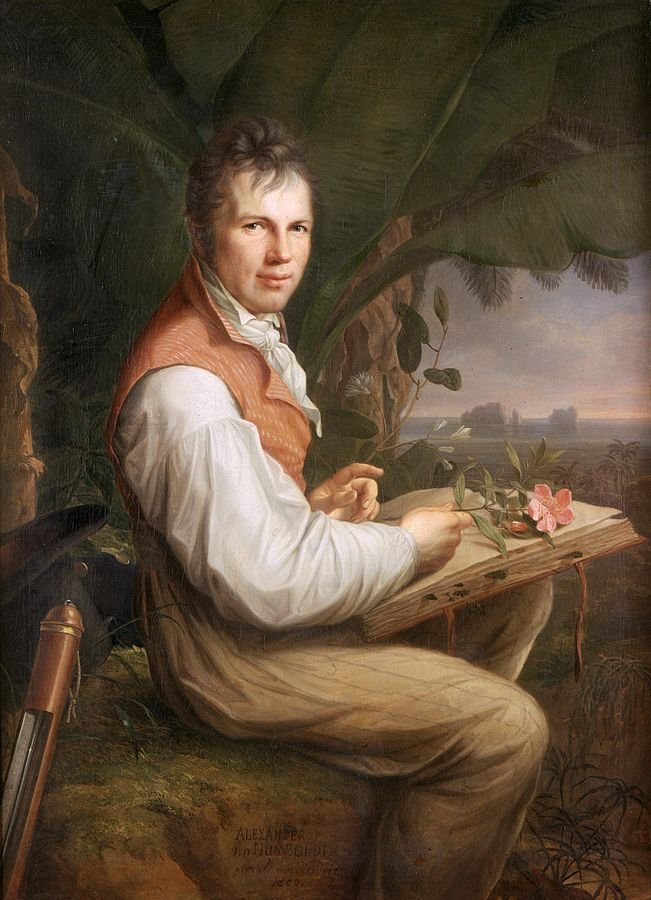
Alexander von Humboldt (1769-1859)
A contemporary and friend of Goethe, Humboldt was a Prussian scientist, naturalist, explorer, geographer, philosopher, and more. Beginning in 1799, he travelled extensively in Latin America, which he was the first to describe from a modern scientific perspective. He travelled in Venezuela, the Andes, Mexico, Cuba, and into the United States. Later in his life, he explored Russia into Central Asia as well. He was driven to explore and pushed his body to great extremes. He was one of the first to suggest that Africa and South America once fit together. Humboldt brought all aspects of nature together, describing it in terms of philosophy and science.
More places and species are named after Humboldt than any other person who has ever lived. Humboldt was one of the “wonders of the world,” according to Ralph Waldo Emerson. According to Charles Darwin, Humboldt was the “greatest scientific traveler who ever lived” and the reason that Darwin embarked on his own voyage of discovery. Thomas Jefferson called him “the most scientific man of his age.” Johann Goethe (also on this list) said spending a few days with Humboldt was like “having lived several years.” In Jules Verne’s 20,000 Leagues Under the Sea, Captain Nemo was described as owning Humboldt’s complete works.
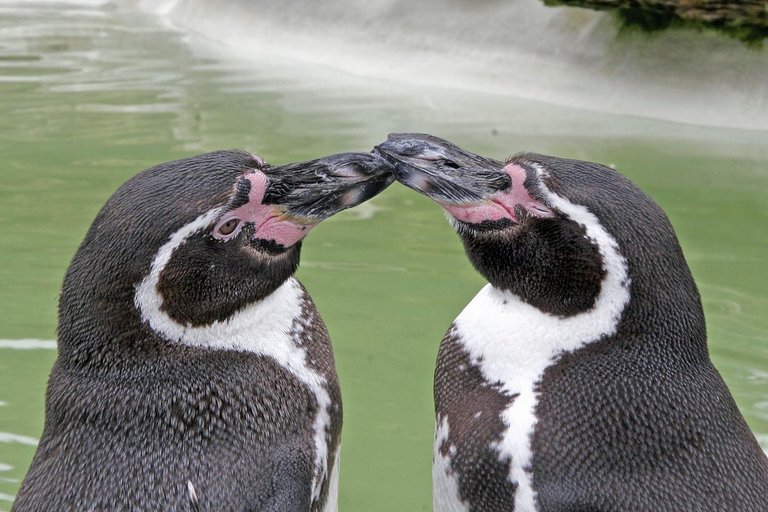
The Humboldt Penguin, one of many species bearing Alexander's name. Public Domain.
The Los Angeles Times explained his influence as follows: “When Humboldt died in 1859, aged 89, he was arguably the last great polymath, a man who investigated nature not just with scientific methods but also by looking at art, history, literature and economics. He searched for global patterns, and his most important insight was that nature is a web of life. At a time when scientists were classifying the world into ever smaller taxonomic units, Humboldt regarded Earth as one great living organism in which everything was connected.”
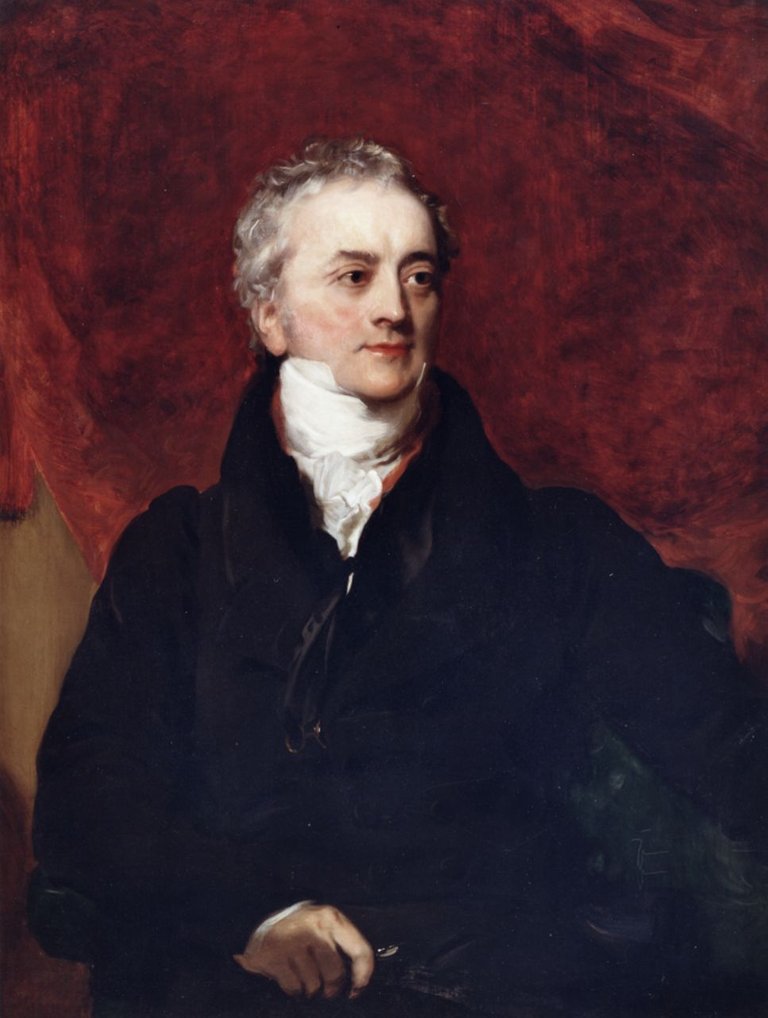
Thomas Young (1773-1829)
“The Last Man Who Knew Everything” was the title of a biography of the British physician, scientist, and linguist Thomas Young, who was born in 1773. Young was a child prodigy who became known as a walking encyclopedia. He continued learning and exploring throughout his life.
He was able to read at age 2, had read the Bible twice by age 4, and was reciting long works of poetry by age 6. By the time he was a teen, Young was reading in Greek, Latin, Hebrew, Persian, Syriac, and Chaldean. By 20, he also had learned French, German, Spanish, Arabic, and Italian. He taught himself calculus and began studying medicine, later working as a physician and being appointed as a professor of natural philosophy at the Royal Institution.
Young was the first person to coin the term “energy”. His most well-known achievement was his development of the wave theory of light, overcoming Isaac Newton’s view of light as a particle. He demonstrated this with experiments and published it. In physics, he also is known for his modulus of elasticity. He was the first one to describe optics in relation to human physiology. And he made a number of other original contributions in medicine.
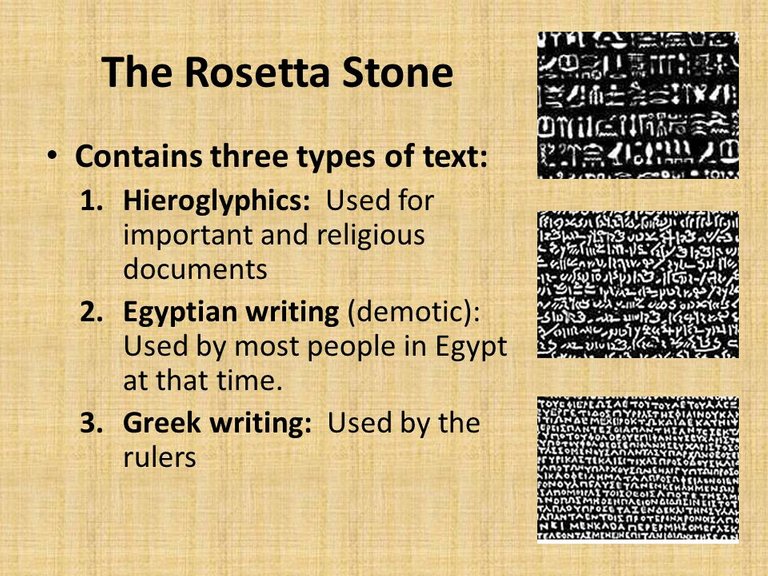
In linguistics, Young deciphered part of the Rosetta Stone, his work helping to provide a basis for the remainder of the translation by others. He discovered some characters that were a key to deciphering it, though he also made some false assumptions. Most importantly, Young deciphered the demotic script, concluding correctly that it contained both phonetic and ideographic elements.
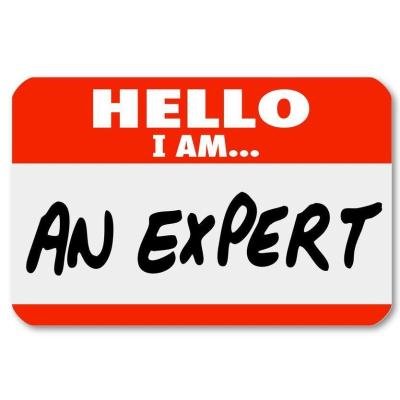
Conclusion
Perhaps they were all “know it alls”. But probably by 1850, if not well before, there was too much development in science, literature, and other fields for any one person to fully know everything there was to know. That's why there was this narrow window in time and place. One of these men (or perhaps someone who I didn’t list) probably was the last person to know everything. After that point, it could not be done. Heck, I can’t even get through a full post on Steemit sometimes!
Sources:
https://www.iep.utm.edu/goethe/
https://en.wikipedia.org/wiki/Johann_Wolfgang_von_Goethe
https://en.wikipedia.org/wiki/Goethe%27s_Faust
https://en.wikipedia.org/wiki/Athanasius_Kircher
http://www.newadvent.org/cathen/08661a.htm
http://www.latimes.com/opinion/op-ed/la-oe-wulf-rediscovering-alexander-von-humboldt-20150705-story.html
https://www.theatlantic.com/science/archive/2015/12/the-forgotten-father-of-environmentalism/421434/
https://en.wikipedia.org/wiki/Alexander_von_Humboldt
http://www.eoht.info/page/Thomas+Young
https://en.wikipedia.org/wiki/Thomas_Young_(scientist)
https://en.wikipedia.org/wiki/The_Last_Man_Who_Knew_Everything
Images are public domain or contain source links (for the quotes) unless otherwise indicated, except: Watson/Jeopardy (Creative Commons via Flickr.com by Atomic Taco) and Goethe Phone (Courtesy of goethe.de). Below: Humboldt in his library; painting by Eduard Hildebrandt (public domain).
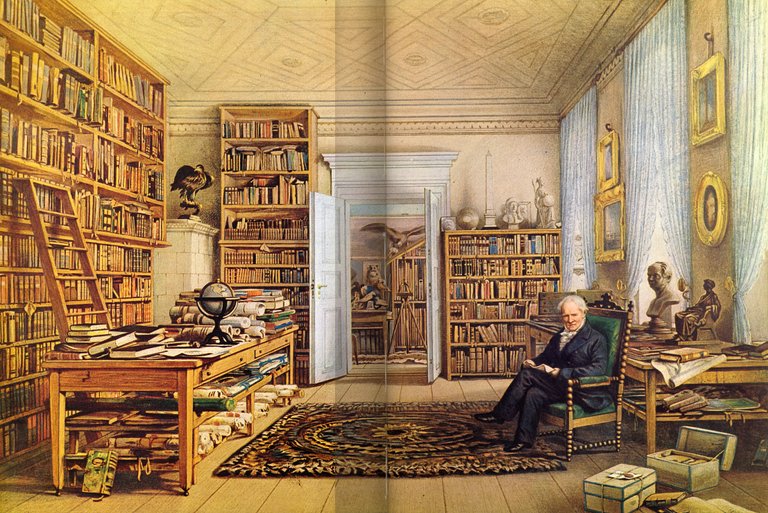
This is an interesting thing. I would like to be remembered for contributing positively to the world with my knowledge some day. Thank you for sharing.
This is an interesting read. These people (I choose to call them legends) did a lot of work studying wide, and making inventions, though we could call those inventions crude, I believe they are the bedrock of the modern technology we have today. They opened eyes of other people to possibilities and hence, wider research.
Though some of their theories were later proven wrong, they still held for some time and it was because there was a theory that people found out a better or more accurate one. Their works go a long way to affect our knowledge of science and technology, arts and languages and so on today. If we have no more know-it-alls today, I wonder what will happen in the nearest future as technology expands.
As we approach pico-technology, people will have to know more about a little so as to be relevant rather than knowing little about so much. I hope that makes sense.
Absolutely no one can claim he knows everything in this world. According to scientist, 86% still unknownin this world - 86 Percent of Earth's Species Still Unknown?. Mind you this is only the things that is under the sun, how about those beyond the sun, in the outer part of this world.
There is just so much to be discovered in this world and there's only a little the human brain can comprehend, but generation to generation, knowledge is expanding. A generation takes off from where the previous stops. Growing from macro knowledge to micro until we get to study the science of the tiniest particles and their application.
Yes, it makes sense. We've become quite reliant on being able to find information rather than remember it. Whether that's good or bad, I don't know.
I don't really think it's possible to know it all. There's no denying the wisdom and intellectual capabilities of these men, but knowledge has expanded and sgphifted so much since then it would have been a convoluted mess were it not for specialization.
Specialization exists everywhere- in nature and in education.
The same was group of body cells come together to achieve a tiny part of the full body functions is the same way the man of today can specialize and become a master in a field. Not all of them. I don't believe that.
I've always enjoyed your writing, I learn from it.
They did their own part to help sharpen the world, Newton Law of thermodynamics is still used today.
Modern scientist used that foundation which has been laid by these Know It All genius to further make their research more easily
The most important thing is that they were all thinkers and put their brain into good use. People nowadays tend to be dumb because they don't use their brainpower.
In my dreams I always wanted to be everything..A musician, writer,footballer,intellect,doctor,UN secretary general...the list longs.Also I wanted to be expert in atleast 50 languages!
It is estimated that an average human doesn't use his/her brain completely.If we were computers no computer ever can outpower us..But that argument is just theoretical! Limitations are overwhelming.
Out of all you have mentioned 'Thomas Young' fascinates me a lot..Reason being he is comparatively modern..Science and all had sprouted out by then.
But in today's world no one can ever become expert even in their on field.Ocean of knowledge floats on the air.But the era of becoming 'Expert of all' has gone forever!
Well @donkeypong inmust tell you that our educational system made us duller than we think. Back them people read and study what they loved. The studied what interests them and studying what prompts your curiosity goes a long way in making you understand that concept better than studying what you have been forced to study .
We had lots of geniuses back then too because many of them concentrated more on a particular field and gave it their very best. These days , a child who is interested in music would be chastised by his parents and asked to go study law. He goes to school and is uninterested . The part of him that loves music begins to dwindle yet he isn't putting in his best into learning law and he comes out a nobody because he has achieved nothing in life.
Same goes to a child who loved playing with gadgets . The potential of him becoming a gadget genius exists but no, his parents wants him to be a doctor and that's the end of his Tech ambition.
Our schools often force us to learn what we are so uninterested in learning . Wuth less enthusiasm, we go to school and come back just the same and at the end we just cram to pass exams.
I saw a video one day about a young lady who started drawing from when she was 2 years. Her parents wanted sending her to school but realised she was so uninterested in going to school and reading other books. The only books she loved reading were books related to art and drawings. She could read thousands of such books at her tender age but wouldn't read anything else and so her parents let her be. At the time of watching that video, she was only 13 and had started making millions for her parents with her drawings. She became the bread winner coz her drawings were just exquisite. She became an art genius simply because she did and studied what she enjoyed.
Same goes to this generation. If only we could be allowed to study exactly what we want to study , read only the books we want to read and learn only what we want to learn, you would be surprised at how fast your mind will accept information and make you a master of all just like these great minds above.
That raises the question of basic income. If, in a future dominated by robots, people were paid a fixed income and did not work for a living, perhaps art, music, and other pursuits would thrive in a new way. Or perhaps not. It's difficult to know.
Lovely post!All of them were the progenitors of modern science!Who does not know the history is useful to read..
Before the printing press was a thing and books where copied by hands by scholars, anyone dedicated enough could have been a theoretical know it all.
These days with the amount of information that the human race generates, you can barely get 5-10% of all the knowledge on a single field, and my numbers are probably an exaggeration, but for example I'm a software engineering student and I know it's impossible for me to know 10% of everything out there in my field, even if I dedicated all my life to it, new knowledge gets generated faster than the speed I can proccess or anyone else can processes current day knowledge.
That's for sure. There's no way to keep up with even a fraction of it now.
Ideas are really like chessmen moving forward. They can be a game changer or simply could end up being a piece of trash. But if everyone starts resisting to put forward an idea because of the fear of it not working then world would be at a halt and there will be no modifications to our present world. So one should start putting forward an idea see whether it works or not. If it works it will be great for the cause and if doesn't still one should take a pride from it. Moreover being curious to know about the things is a gifts not everyone has. If you are curious to know many a things you are on the right side of the world. Although it may not be possible to know about all the things as the world is too vast to know about everythin. Yet one should try to know about different things from variety of topics as he/she may end up helping humanity in many ways which ofcourse is good for the society.
Well @donkeypong inmust disclose to you that our instructive framework madebus more blunt than we might suspect. Back them individuals read and study what they cherished. The contemplated what intrigues them and considering what prompts your interest giesba long route in improving you comprehend that idea than examining what you have been compelled to think about .
We had loads of masters in those days too on the grounds that a considerable lot of them focused more on a specific field and gave it their absolute best. Nowadays , a youngster who is occupied with music would be chastised by his folks and requested to go examine law. He goes to class and is uninterested . The piece of him that affections music starts to decrease yet he isn't putting in his best into learning law and he turns out no one important on the grounds that he has accomplished nothing throughout everyday life.
Yes, that's true. And most people need to work for a living also, which some aristocrats and intellectuals of the past did not.
The world today is too vast to be a know it all.
You are a genius if you know all about a particular field.
But there's just too much going on to know everything
There's no way to know it all now. Back then? Perhaps.
Perhaps.
Sometimes even steemit can feel overwhelming.
Knowing it all is out of the question now
Well knowledge is the key to everything, but the thing is knowledge doesn't matter that much if you don't implement it in your daily life, practical is important, if you possess a small knowledge but implement that in your life, it's far better than possessing infinite knowledge and not implementing it in your life, all of the above said people have done a lot for the society, humanity is this far due to them.
True. That reminds me of another quote...
Hmm.. It the thing, how much we implement in our life
It is really hard to claim you know everything in this current age where we have information overflow from all directions.
These guys were great as i can read and also the world had not yet developed to peak levels we are at now.
I am amused by how almost most of Athanasius Kircher's work was proven wrong,especially the part where he was viewing bloodcells 🙆🙆.
I have read some counts about how great Johann Wolfgang von Goethe was and am happy he is on the list.
The one who deserved to be on top is the on you put at the bottom hahaha!!
The walking encyclopedia Thomas Young,damn he was abke to read at 2 and had read the Bible twice by age 4..!!!!! I have not even reached half way the bible yet!
I do now accept this guy was a "know-it-all"
How can someone like me have or develop such abilities in this current age?
Yes, I did not list them in order of importance, only order of birth by date. Some people are very bright with languages and learning is easy for them.
Nice read but still amaze me how one person could boast of such knowledge, being a connoisseur is no small task. Though knowledge might not have expanded like this but being expert at two or more unrelated fields/discipline is no small task. Considering being an authority in religion and physics, two parallel lines that would never meet.
I'm I the only one that notice Goethe and Humboldt were friends, friends rub it on each other. I need a smarter friend than myself. Lesson learnt.
Haha. Yes, there was a group of them who knew each other and synergized together: Goethe, Schiller, Humboldt, and Humboldt's brother Wilhelm. Schiller and Wilhelm were no slouches either. Maybe knowing more intelligent people would help. :)
Good advice, Steemit is doing that already. The volume of intelligent write up I consume daily on the platform has broadened my knowledge on diverse field too. I would need much more effort to get erudite offline. Learning is endless, a good hobby I'm inculcating. Thanks for the advice.
Gosh it must be wonderful to be this clever - I would just like to remember everything I read but o dear the memory..... I found your post very interesting, I think you just left out one 'Know it all' .... the teenagers of today hahaha.
Yes! Young know-it-alls. I was one once. In fact, there's another quote around here somewhere...
That's more like me now. I have enough trouble remembering to take out the trash.
Hahaha that is so true - well you know what they say 'youth is wasted on the young', but like you say we all were there ones - but o boy do we come down to earth with a bang
Sorry if I interrupt your convenience,
You are my inspiration.
I believe you are a good person who will help schoolchildren and starving children @donkeypong
Last year my friend and I created a community of Charity For Children of the World Generation, which is engaged in social education for children and hunger in order to keep learning for the future,
I have posted on my blog about the Charity For Childrens Community of the World's Generation community. In that post I mentioned your name as my motivator,
If you do not mind, you can appreciate my block for suggestions and feedback so that the Charitable Generation community for Children of the World Generation can continue to help the children.
You are my inspiration.
hopefully you can judge my writing and advise me to keep walking and more children saved from ignorance. I want you to be my teacher.
Thank you...
Followin the date in think Alexander von Humboldt should be the last to know it all. I should be right with my answer?
There's no right answer because we'll never know. He's as good a guess as any of them.
When I started reading your post, I must admit that the first thing that popped into my head was “I am sure most of these names would be from the western world and would be men”. But I was happy to see you acknowledge that there may have been people from other countries or even women who may not have been known or celebrated at that time.
While growing up in Nigeria, I observed that smart people were typically seen as crazy or even mocked. You were expected to conform to the expectations of your community and you dare not think differently. Knowing this, I am pretty sure that those who possibly fell into the category of Humboldt probably went unnoticed.
Yes, I agree. It's not my normal style to ignore women and people who are not from Europe, but it's really difficult to find evidence of anyone else in this window of time who might have had a claim to full knowledge.
Trust me, I agree with you. It is one of the major issues we have in Nigeria, in my tribe and even in my family. We the youth, seek to learn more about our past but nothing was documented. Our history lives and dies in the memories of our ancestors which is so sad because we want to hear about the great people from our history. The intellectuals, the warriors and artists of the past are all unknown to us.
No one knows this yet, but my plan for this Christmas is to get as much of my living family members together and then start documenting all of the stories they used to tell us when we were children. I am passionate about learning about my culture and my people, so that maybe 100 years from now, someone will write about the intellectuals, warriors, linguistics, scientist, artists and so on from Nigeria.
A people without the knowledge of their past history, origin and culture is like a tree without roots. Knowledge about the past is so very important it's an entire subject to be discussed. On this subject I think Thomas Young wins the contest here. He was considered to be the last man to know everything. He was familiar with virtually all the contemporary Western academic knowledge at that point in history. Clearly this can never be verified, and other claimants to this title are Gottfried Leibniz, Leonardo da Vinci, and Francis Bacon, among others. Young also wrote about various subjects to contemporary editions of the Encyclopedia Britannica. His learning was so prodigious in scope and breadth that he was popularly known as "Phenomenon Young."
All of those people were very smart and versatile at the times they lived. But I'm not convinced Leibniz was any better than the ones I covered; those others lived earlier. Young definitely was a phenom. Does that make him a complete polymath? Perhaps.
My country's national hero was a polymath.
"Rizal was a polymath, skilled in both science and the arts. He painted, sketched, and made sculptures and woodcarving. He was a prolific poet, essayist, and novelist whose most famous works were his two novels, Noli Me Tángere and its sequel, El filibusterismo"
"Rizal's multifacetedness was described by his German friend, Dr. Adolf Bernhard Meyer, as "stupendous." Documented studies show him to be a polymath with the ability to master various skills and subjects.He was an ophthalmologist, sculptor, painter, educator, farmer, historian, playwright and journalist. Besides poetry and creative writing, he dabbled, with varying degrees of expertise, in architecture, cartography, economics, ethnology, anthropology, sociology, dramatics, martial arts, fencing and pistol shooting. He was also a Freemason, joining Acacia Lodge No. 9 during his time in Spain and becoming a Master Mason in 1884."
Source: Jose P. Rizal Wikepedia
Thanks for the comment. I'm not too familiar with him, but will research more.
According to Vedas the periods in Human existence on Earth are divided in 4 Yugas ( Satya Yuga, Tripara Yuga, Dvapara Yuga and this ages now Kali Yuga )...Each period lasted double less and people were living less. In Kali Yuga, people live 100 years, but in Tripara Yuga people lived 1000 years, in Dvapara 10000 years,...and so on. On the other hand the wisest person lived in the Golden Age called Satya Yuga....They could have remembered anything by heart. Even at the end of Dvapara Yuga the wise persons remembered all those verses by heart...Now age, in Kali Yuga, the period of quarrel and envy, very few people remember as You noted them up...
In the time when oral tradition reigned, some of those people were incredible at remembering the stories. I'm not convinced they remembered the right number of zeroes for their ages, though. :)
😁😁😁 Yes, you are right...Tooo many zeroes...I saw a documentary where those people not that were living so long, but they were very tall, from our perspective, giants...You see even now in Pakistan, Hunza people live for 160-200 years and women give birth at the age of 60
Another interesting and informative post @donkeypong! I taught History for years and learned some new facts myself here today...so thank you for that as well ;)
You're right; there really is so much information out there today that's it's impossible to know it all. The real problem is that there's so much false information as well, and the general population doesn't seem to know how to distinguish between the two.
I realise the necessity of 'dividing' groups of information, so that today you may be an expert in Literature, but not Math; Biology, but not Medicine. What seems sad about it all though, is that in the process, we seem to have forgotten that it all is intricately connected, and not separate entities.
I've never really thought about it in these terms but have instead attributed it to things like industrialisation, commercialism, materialism etc. So I guess your post has got me wondering about something entirely new...for me anyway.
As an aside, I love the last photo of Humboldt in his library. When I was growing up, I dreamed of having a library like that. Now I have my phone, laptop and e-reader haha (I have to laugh or I might just cry ;)
Cheers!
I'd still love a library like that, even with my devices. :)
Fair enough, me too...we would just need one shelf for that 'stuff' I guess anyway ;)
The spectrum of light has become a great tool used by scientists, even chemists in explaining some principles and theories. Moreso, I have used this to even detect and analyze cyanide in water. This show some of the brilliant contributions of the people you have mentioned.
Young is really a genius. I cant even remember if I know how to read at age 6. And his ability to read different languages is really great.
This is why they say you can only be a Professor in a tiny area of your field which is part of the broad area of a subject.
Thank you for this post. It is really informative and educative.
Like these Athanasius Kircher, Johann Wolfgang von Goethe, Alexander von Humboldt and Thomas Young all were greatest person some fields. Look at inside current society, we cannot find good acknowledged persons know it all. But someone think like that. Absolutely your article being educative level and good trending level blog. Your every posts can take best imagine and good sense of humor. Thanks for given best presentation and gift to steemit.@donkeypong, I agree with you. Currently every peoples find some information via internet using, they have less knowledge for everything. But let's see those days every peoples had full understanding knowledge more than current society. You given most past historical things, someone I don't know yet. But your information would be really helpful for understand every past history.
I’m going with Young... the last youngest.
these are great men the world has ever had..thanks for sharing this beauty @donkeypong
there is a saying that old is gold and I think this is very much true after reading your post
well good to hear and read some about legends which are really heroes in history and great persons i really respect them and dont care the some of theories were wrong later because i think they leaved a concept of scince and technology in earlier when no one knew it and have not concepet of science
maybe now we have some great minds which who create and give some incredible things in science but it is only possible from those hereos who leaved the concept in those time when they were have only 1% sources to understand concept of science and work on thier projects to give some new the world
No one in this world is perfect and perfectively knowledgeable either...Every era was a great change in the history of mankind..From the primitive stage to modern stage things has change a lot in the area such as Science,technology,literature and cultural aspects etc.Numbers of philosophers and sciencetist and revolutionist has brought changes in the world and we are still learning from our past and present coz learning is never ending....
Thank @donkeypong I learned many things from your post as it was very informative and knowledgeable.
i believe it's not possible that human being can Know-It-All because humans has limitations which stop us to be Know-It-All but we can say some of he historical human being are just extra ordinary like Athanasius Kircher ,Alexander von Humboldt , other many more they are very superior on knowledge... today's educational system had made us more dull ...day by day now we are being more depending on book and also Internet... even for the small calculations we went to calculator we don't use our mind , more as some of the great people's of history used to do. this modern world has given us many facilities and technology which make life easy then before and we had become duller then before @donkeypong
How about Elon musk builds a humanoid with AI and link it to Google.
Don't you think that would be "know it all".
This your list contains men that really know it all. I will take my time later to study each of them one after the other.
This generation and the future generations should not allow these people to be the last people that know it all. We can produce many great people that will be vast in all fields. Moreso, we are well equipped more than they are and the internet can make us achieve more than what they achieved.
This platform, steemit, is also helping a lot as I've gained knowledge from different fields from steemit.
Thanks @donkeypong for this great post
it's really interesting to see post on education and knowledge... it's might seems similar but never be the same this is world noone can calim that they had all the knowledge about everything... on my opinion knowledge is what we get by practice and the experience which need a long journey to learn and understand how things goes it's depend one your curiosity and self intrest ... and the education what we get from our education system which always give us the particular information in particular field...
There is no age and time which will stop us to get knowledge , learning is life long process which never enough for us. @donkeypong
Well said @donkeypong, Good knowledge must be important for stay community. My opinion is peoples used their limited knowledge and learn much knowledge. Everything want to use for provide best society. Our much knowledge of any fields not deserve to worst usage. Ex:- If I have massive computer software knowledge and if I can hack any user accounts, don't accept hack. Every knowledgeable things must use only good activities. Has anyone ever known everything there was to know? Who was the last person to have read every book in existence? Believe it or not, this is a hotly debated question in certain academic circles. Several names are commonly proposed. Thank you for provide very interesting post @donkeypong.
If there's one thing in this world I always believe that would be " No one knows all except the Almighty God". Let's accept the fact that human knowledge won't be able to understand everything. We can only understand so much but NOT ALL.
Made my day! Thank you and keep it up!
I quite agree that it was relatively easier then for somebody to gain a vast array of knowledge by reading the exhaustive list of books that was present then and covered most of the fields but I still believe that anyone who is determined even today can spread his knowledge base as wide as possible. You don't need to read all the books available now. Why not choose one? Bless God we have a rating system for books and we have a list of bestsellers. Why not approach the bookshelves and pick one from this list in every field?
Yes! I believe that by doing the above, anyone can grow in wisdom and understanding and get to be like the scholars of the past and even more.
As a woman, i appreciate and thank God for the level of civilization we have attained in the world. I can't imagine what I'd feel like to have my knowlege potentials limited by default or have my intellectual efforts not appreciated simply because I am a woman.
I want to also say that it's still possible to attain that same level of knowledge base as the scholars of the past. If only we could put in the same amoumt of effort like those men. Most of those men didn't start families or have any other engagements simply because they wanted to concentrate in academics. How many of us can do this?
Love to know about these people and know their history,actually I never heard these people.it is really interesting to read.The article “the last man who knew everything”about thomas young was really interesting.I think they are the inventor of technology thats why its says,they were the people who know everything.
I think someone said that Kepler was the last man to know everything. It may be that we are now redefining the 'everything' that this new man has to know; he must have just sufficient knowledge to assess the contribution of his predecessors
Very good post @donkeypong, I really like to read your article, because many things I find in every article you. And it can always be a very good motivation for the crowd, especially for myself. I'm not surprised if you succeed in working in steemit. Because you do have a very powerful mindset, so you are able to create useful articles for people. Thank you for sharing and hope you will be more successful to work ... :)
@donkeypong When we understand who the founding generation was, we realize that even Thomas Young was just an American who knew his duty and did it. So did tens of thousands of patriots at every level of the societal order. This is what we just don't understand. The people of the 1770s knew they were obligated to perform their civic duty, and they did so individually and severally. Every man of the day had a subjective knowledge that he was obligated to preserve freedom and protect the unalienable and constitutional rights of the people. Why? Because this would secure his own freedom as well. But what they possessed practically that we do not, is a vested authority, authorized by colonial statute, to be armed, accoutered, trained, organized, and disciplined in a local Militia company. In addition, the citizens understood their power as Electors, and their power as such Electors to create and enact local laws through local Townhall meetings, or through electing Delegates to local Committees that they created by their own political power and authority, to perform whatever functions the people of the communities deemed appropriate. The local citizens instructed their Representatives of their wishes and expected the Representatives to do just that--represent them under threat of ostracism and rebuke in a public venue, with the power ultimately to remove them from office. But most importantly, every male who served in their Militia knew by his own experience that his primary role was to "execute the laws". The men of the late 18th century until at least the 1860s practiced such execution, and were organized locally through subsidiarity to assure that such execution was always in the hands of the People themselves. This is grossly missing today. We need to remember the good past so we are blessed to repeat it. If we don't remember the good past, we will get what is coming to us.
thats great to share today some improtant from history and i really like this to know some thing from history and those persones who have much inportant in this world and all these things of techonology which we use and get benefits from all these things
its true that techonolgy made our life more easy and we have more talented person in the world but i if i say true i think these all talented persons are some poor as compare to those persons who did some think witout any technology, sources and without other's informations
now we can find every thing easily via internet and this is true internet and easy information sources make us lazy and make our minds too poors for doing and make incredible creates
i salute all them who used thier minds with right attitudes and also appriciate them for thier efforts and great activities for all ourselves
really super & mind touch post and pic like it.
I get a lot of information from them and get knowledge which I can use in future.the new steemit users are always benefiting from your helpful posts.
There are many informative news from you.
Everyone loves to read such history.
And there is much to know from every history.
thanks for sharing. resteem done
Very good post to read . and also to learn a lot from this .
I followed you . bcz i like you writing . it will help me to learn a lot of things from you .
These are legends . and legends made from there hard work . may be we will also but if we do the same as they do . at any field .
Keep it up dear .
Hey bud @donkeypong , no one can outrightly know it all, there are alot of things involved and those things keep changing with time, and you keep learning new things. So what you know today might not be tomorrow.
Your post is so good and interesting..i like your all post so much.. thanku for the great post..@donkeypong
the intellectual human model during the renaissance period. Many characteristics of human beings were expected to be collected in this period; as a scientist, painter, writer, sculptor, able to use good swords on their translations, and making politics as a member of the parliament. In later times, a person should not focus on a particular topic, but it is also more efficient. Of course, there are very good examples such as leonardo da vinci not to be unfair
I never know there can be something like this.. Wow what a miss...
Thanks for sharing light into this.. I love histories.. And still looking forward to your next post 😍 @donkeypong
Very good history, I love to read about history, because it can become a new knowledge and become a good motivation for us. By often we read history, we can have a high knowledge, because there are many teach about the experience and can know what happens before we are born. I just joined steemit, and I do not understand much about steemit, if anything wrong I apologize, because I will continue to learn to be able to work in steemit well. Let me be as successful as the people out there. thank you @donkeypong
absolutely true @donkeypong now days, in this world none present who can claim a full understanding of all human knowledge. and i think so now it is impossible that such a person will come in the future
hey your writing..so good.and interesting....i like your all post so much.. thanks for sharing.